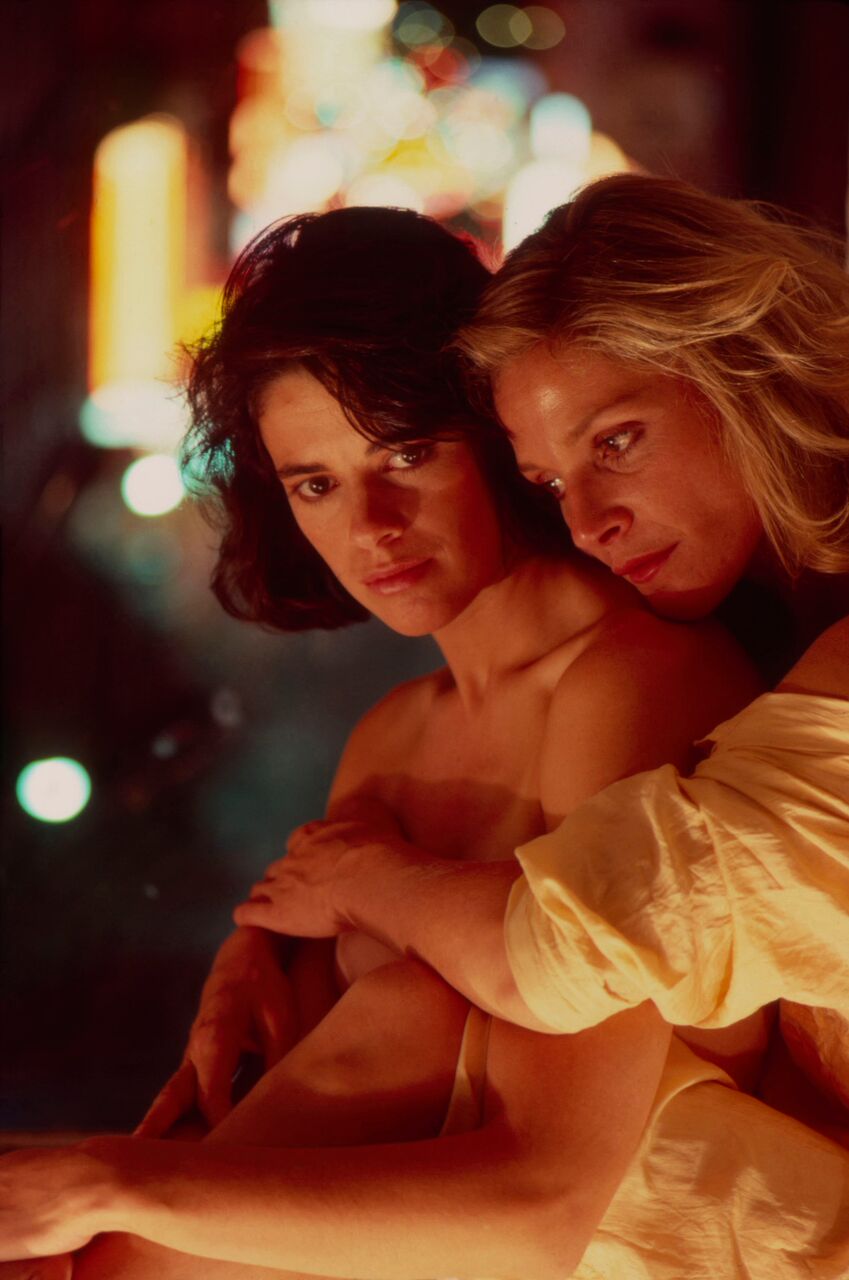Out filmmaker Donna Deitch’s emotional, romantic-drama “Desert Hearts” became an instant classic of lesbian cinema when it was released back in 1985. The film will screen 7 p.m. Feb. 1 at the Lightbox Film Center (formerly known as International House).
A coming-out story set in 1959, “Desert Hearts” shows Vivian (Helen Shaver), an English professor, arriving in Reno to wait out a divorce. Staying at a local ranch, she meets Cay (Patricia Charbonneau, in a remarkable debut) who works at a nearby casino. Vivian is prim and proper, and wants to “be free of who I’ve been,” while Cay is reckless and seductive. Their slow-burn attraction heats up when the women first kiss in the rain but as their relationship develops, they set tongues wagging.
In an interview conducted last year, when the film was restored by Criterion, Deitch explained that she made “Desert Hearts” — based on Jane Rule’s 1964 novel, “Desert of the Heart” — to fulfill her “passion to make a hot lesbian love story.”
“I made the movie I wanted to see,” she added.
Audiences continue to connect with “Desert Hearts” even long after its release.
“People come up and tell me their ‘Desert Hearts’ coming-out stories,” Deitch said. “I feel I should be collecting them on my website.”
The filmmaker observed that one reason her romance was attractive was because, “It is a love story between two people who initially have absolutely nothing in common except that they are the same sex. It’s ironic; they each have something in themselves that the other yearns for. That’s the heart of the connection.” A lovely moment has Cay’s face being superimposed over Vivian’s to visually convey the women’s growing bond.

The film’s tender love scene may also be why the film has such devoted fans.
“That love scene is the centerpiece of ‘Desert Hearts,’” Deitch said. “Of course — because it’s a lesbian love story — the film needs a love scene. I wanted it to have a beginning, middle and end, like a dinner scene. I spent a lot of time discussing it with Helen and Patricia. It’s about the emotional journey that accompanies Vivian’s sexual journey. I scheduled shooting it the second-to-last day so the actresses would know each other and be more comfortable. But equally important was that I had their full commitment to do this scene before they sign the contracts. These two actors were so fantastic and committed to fully realizing the journey.”
However, back in 1985, most actors were reluctant to make films with LGBT content. The director recalls difficulties with casting because “nobody wanted to be in the movie. No agent wanted this, even if it wasn’t the lead roles. There was so much homophobia. No one wanted to audition. It was shocking. I think I got the best people to play those parts and that was, in a way, the benefit of all of that homophobia. I didn’t go to anyone known.”
The sultry Charbonneau, in particular, was a real find. Her first moment on screen — driving backwards to introduce herself to Vivian — makes an indelible impression.
Deitch recalled a “fantastic casting director” named Tim Black, who died from AIDS at a young age.
“He brought everyone to me. I didn’t know any of these people. I saw Patricia Charbonneau’s 8×10 photo and this was exactly how I saw [Cay]. She’d never done a film before. I met her, and they said I needed to test her, but I didn’t think I did. I flew her out to Los Angeles and I had her read with Helen Shaver, and I saw the chemistry. That was so important in my mind. I needed to see it before I cast Helen. It was quite magical.”
The filmmaker herself has a cameo in “Deserts Hearts” as a Hungarian gambler, who spouts the memorable line, “If you don’t play, you don’t win.” The director said this was “central metaphor.” Deitch then demurs, stating it was “pure hubris” to appear in the film.
“I belong on the other side of the camera. That’s how I always felt. Somehow, I wanted to do that [cameo], and I couldn’t be talked out of it. But never again.”
The critical and commercial success of “Desert Hearts” certainly helped Deitch’s career, as Oprah Winfrey saw the film and hired her to direct episodes of “The Women of Brewster Place.” The filmmaker continued to direct television for the next 25 years. But now Deitch wants to get back to making her own projects. She claims she is “working on an unconventional sequel to ‘Desert Hearts.’”
“It doesn’t follow those characters, but they are in it. It takes place in the second wave of feminism in New York City.”
Until that film is completed, however, audiences can cozy up by seeing (or re-watching) “Desert Hearts.”
